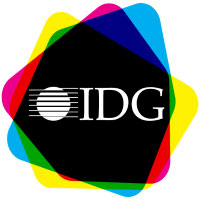
IDG last week introduced Pipeline Activator, a global subscription-based service pinpointing verified projects and active sales prospects for those selling to enterprise IT.
Pipeline Activator, the latest addition to IDG’s ABM360 suite of account-based marketing services, provides sales and marketing teams with detailed insights on target companies actively researching products and services for purchase.
IDG identifies and validates nearly 250,000 active projects a year across companies worldwide. It collects data from digital content interactions, demand generation and events.
The company has more than 700,000 line of business and IT decision makers from the Forbes Global 2000 in its database.
“I treat Pipeline Activator as an ongoing stream of relevant and recent data signals,” said Ray Wang, principal analyst at Constellation Research.
Stay on Target
Pipeline Activator, which is available in the United States, Europe, the Asia-Pacific, Latin America, the Middle East and Africa, identifies active, verified projects at both the regional and individual country level.
Subscribers get a global view of IT project activity and buying intent for their target lists at the account level, along with data such as the targets’ budgets and IT priorities, and exclusive verbatim interviews with buying decision makers.
For example, a cloud solution provider can use Pipeline Activator to identify sales prospects and track their intent to purchase, so it can target sales and marketing activity more effectively at the best time to increase the chance of closing a sale.
Clients either supply their account list and topic area or select their targeted technology initiative — IT management, for example — and target audience, such as a company with 1K employees and planned converged infrastructure projects.
Pipeline Activator has marketing automation integration with Marketo, itself an account-based marketing vendor, Salesforce and Eloqua, a marketing automation platform owned by Oracle.
The Importance of Data
“The disintermediation of the sales person and the move toward subscription purchases and renewals instead of large one-off tech contracts have challenged even the most effective traditional sales teams to build and maintain profitable relationships with their prospects and clients,” observed Rebecca Wettemann, VP of research at Nucleus Research.
“When we talk about the death of the sales funnel,” she told CRM Buyer, “two key approaches to sales effectiveness are data delivery, in a meaningful and proactive way, and automation that enables sales teams to remain top of mind with prospects even when they’re not in a buying cycle.”
Pipeline Activator’s effectiveness in large part will depend on data quality.
“The pipeline is only as good as the list that IDG curates,” Constellation’s Wang told CRM Buyer.
Pipeline Activator “is a new service,” he noted. “What folks are trying to figure out is how much software and how much custom services this will require.”
ABM Strategy
Data is key, and “there’s a lot of work still required to make this work,” Wang said. IDG has “a great list, [but] the next level of finding possible engaged prospects will come from intelligence. This is why it’s important to apply an ABM strategy.”
Competition in the ABM field is fierce, with “Oracle, Microsoft, Salesforce and others bringing more data and insights into the mix,” Nucleus’ Wettemann observed. “We’ll continue to see vendors and aggregators coming into this space.
“In an increasingly transparent tech economy, these providers will live and die by their ability to actually deliver results and revenues to their clients, because the world will quickly know about it,” she added.
ABM Needs Support
Pipeline Activator users can identify and act on companies with the greatest potential from within the leading CRM applications, according to IDG.
“You need marketing automation to make it happen and CRM to provide interaction history,” Constellation’s Wang pointed out.
B2B companies increasingly have been implementing ABM programs, suggests a SiriusDecisions report released last year.
More than 70 percent of the more than 200 B2B companies surveyed said they had staff fully or partially dedicated to ABM.
Forty-one percent of the participating companies had a full program in place, and 58 percent were running a pilot or test program.























































